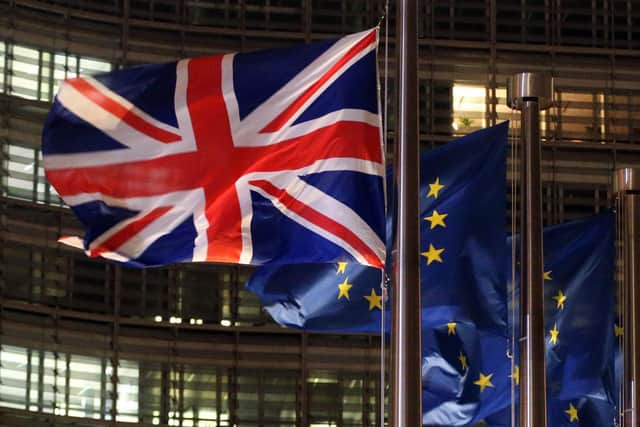Brexit will do very little to support people on low incomes - Yorkshire Post Letters
It’s seven years since Brexit when David Davis said “there will be no downside to Brexit, only a considerable upside” but we have seen no upsides, only economic instability, political turmoil and social division.
Brexit was driven by populist and nationalist rhetoric and a population embattled by Cameron and Osborn’s austerity and a man now known globally as a liar. Today, Brexit is considered by many to be a mistake.
Advertisement
Hide AdAdvertisement
Hide AdThe financial consequences of Brexit are well documented, but the social consequences are unknown because the Government has not assessed the likely effects of Brexit on those with low incomes - on wages, immigration, mental and physical health and wellbeing, nor has there been a public enquiry into the impact of Brexit.


Research carried out by the Nuffield Foundation examined the social impact of Brexit particularly regarding public services and found that because of expected low levels of economic growth due to Brexit, less money will be available for Government to spend on reducing poverty and inequalities in health and education and for improvements in skills, welfare and housing, placing the Governments ‘levelling up’ at risk.
The research found that people with low skills, who work long hours, are unable to afford private health or social care and receive social benefits are particularly at risk leading to an increase in inequalities.
Workers’ rights are at risk from Brexit because as the UK tries to find new ways to attract investment, the rights of workers may become the subject of trade negotiations leading to even lower wages and longer working hours, also, reductions in higher paid employment could lead to increases in low pay and job insecurity.
In conclusion, Brexit will do very little to support people on low incomes – another Brexit downside.
